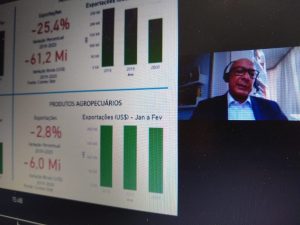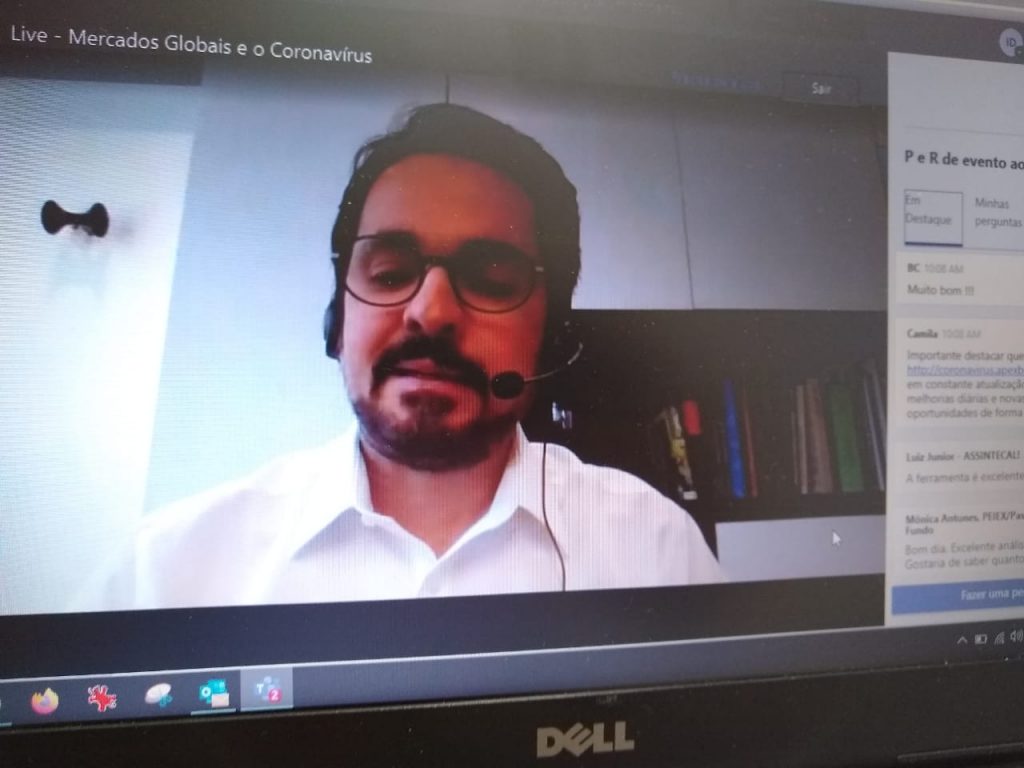São Paulo – The COVID-19 pandemic is causing countries to cut import duties and restrict exports of products around the world. Several nations have reduced taxes to buy essential products from abroad to fight coronavirus, such as health equipment and protection items as well as other items key to supply, such as foodstuffs. Some nations have also forbidden exports of goods necessary for their domestic markets in the current scenario.
An overview on the topic was presented on Friday (3) during an online conference held by the Brazilian Trade and Investment Promotion Agency (Apex-Brasil). Market access coordinator Gustavo Ribeiro presented a decline in import duties and restricted exports as opportunities for foreign trade companies. Concerning the export bans, the removal of a country as a supplier could mean an open market for another country.

However, Ribeiro called for caution regarding this information and reported that most decisions apply for short periods, and some are prior to coronavirus or were implemented to appraise the domestic supply. He pointed out that bodies like the World Trade Organization (WTO), Food and Agriculture Organization (FAO) of the United Nations, and World Health Organization (WHO) have alerted the governments to minimize trade restrictions.
He said that 50 to 60 countries currently have some restriction on medical products in force. Taiwan has restricted exports of individual protection equipment, India has banned exports of protection equipment and lab material, and Saudi Arabia has banned equipment and medicine exports. India has also restricted the shipment of hydroxychloroquine, paracetamol and vitamins.
Concerning the reduction of import duties, Colombia has reduced to zero the import tax on individual protection equipment and cleaning products. China has cut import taxes on the pandemic prevention and control goods as well as meats, and Indonesia has postponed for six months the fee collection for 19 sectors, such as surgical products raw material, sugar, flour, and salt. Lastly, Saudi Arabia has cut to zero medical taxes for one month, and the UAE offers refunds.
Moreover, Hungary has banned hydroxychloroquine exports; Russia restricted wheat exports for ten days; Kazakhstan has also restricted wheat, rye and sugar exports; Vietnam, India, Cambodia and Thailand forbade rice shipments; Thailand forbade exports of individual equipment and eggs; and Pakistan forbade onion exports – which actually happened before COVID-19.

Ribeiro talked about this kind of movement in international trade in sectors other than the food and medical sectors, such as furniture and transport equipment. Apex-Brasil Market Intelligence manager Igor Isquierdo Celeste addressed the matter. “The restriction in food and beverage exports in some countries could open windows for exports for other countries, even if for a short time,” he said.
Celeste presented foreign trade figures on Brazil in the first quarter. Over the period, Brazil grossed USD 50 billion exports, down 3.7% on the daily average. In the foreign trade scenario, he said that food and beverage are some of the least affected sectors. “We had forecasted that it would have a smaller impact due to its essential nature,” he said while opening the webinar.
Apex-Brasil Foreign Business analyst Ulisses Pimenta gave an overview on Brazil’s trade with countries that have been strongly affected by COVID-19, such as Italy, China and the United States. In the first two months of the year, Brazilian exports to these countries declined in oil and oil products (-4.8%), machinery and equipment (-34%), food and beverage (-25.4%), and agricultural products (-2.8%). Pimenta said that all countries affected by coronavirus have seen a quick change in the consumption profile of essential products.
Translated by Guilherme Miranda




